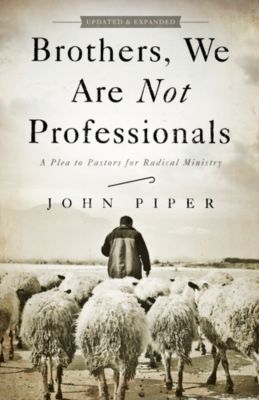
Our only hope for real transformation through our preaching is the gospel of Christ. Knowing Jesus is the means and goal of transformation.
By Mike Leake
Think of a man named Sam, who has benefited from seven years of Bible preaching. When he first came to church, he was a mess. Now he is an entirely different person. You have seen complete transformation in his life. This kind of life change is every preacher’s goal. Sam tells others about Jesus, votes his values, and labors in the community to push back darkness. And he does these mighty works in the name of Jesus.
Sam is an ideal disciple, you’d think. The only problem is Sam is the one described in Matthew 7:22-23: “On that day many will say to me, ‘Lord, Lord, didn’t we prophesy in your name, drive out demons in your name, and do many miracles in your name?’ Then I will announce to them, ‘I never knew you. Depart from me, you lawbreakers!’” (CSB).
Every preacher wants to make a difference in the lives of those hearing our words. We want our preaching to transform people. But transform them into what? How do we preach in such a way to help “Sam” know Jesus?
A lesson from Nehemiah
Sam loves Nehemiah. Nehemiah is the type of guy he’d pattern his life around. Nehemiah was a guy who got things done. Consider the reforms he brought about for the Israelites:
- He spearheaded the reconstruction of the city walls.
- He kept going in the face of opposition.
- He helped reestablish the covenant between God and Israel.
- He combated widespread social injustices.
- He ensured the cancelation of debts, according to the law.
- He liberated enslaved Israelites.
- He put in place policies that would give proper treatment to the poor.
- He restored the Sabbath.
- He rebuffed the intermarriages with pagan nations that had led them astray.
- He revitalized the Levitical priesthood.
- He led the people in confession.
Those are all wonderful things. In the history of Israel, Nehemiah is one of the “good guys.” He certainly made the community around him better. At the end of the dedication of the wall we read of the people rejoicing. It was so wonderful that “Jerusalem’s rejoicing was heard far away” (Nehemiah 12:43, CSB).
“Behavior modification doesn’t last without a heart change.” — @mikeleake Click To TweetSadly, the book of Nehemiah doesn’t end in chapter 12. The story continues. Nehemiah left Jerusalem for a few years. And during this time almost every one of his reforms was called into question. The book ends with Nehemiah on a bit of a rampage and essentially telling God, “I tried. Don’t judge me for their disobedience.”
The problem
Jeremiah and Ezekiel outline the problem Nehemiah faced, and really the problem with any of the reforms and revivals in the Old Testament. The people needed “a new heart” and “a new spirit.” These would only come through the new covenant. Behavior modification doesn’t last without a heart change. Nehemiah could get people to shape up for a season. But as soon as he left, they went back to their old way of living. This is no fault of Nehemiah. He was faithful to what God called him to do in the season in which he lived. But his reforms didn’t stand a chance without the new covenant.
And that should be a lesson for every preacher. Our only hope for real transformation through our preaching is the gospel of Christ.
The key to preaching for transformation
Sam is the product of his pastor’s misunderstanding of what it means to preach the Bible. At a glance, it seems the pastor does a great job of preaching the Bible. Each week he feeds the congregation a good running commentary of the meaning of the text and then gives application points about how they should now live. At the end of each sermon, he tells unbelievers how they can become Christians.
His most recent sermon on James was about the necessity of being a good listener and not being someone who gets angry quickly. “After all, God has given us two ears and one mouth,” he said to the enjoyment of his congregation. If the congregation heeds his words, they’ll be much better people within their community. The problem, though, is that he hasn’t connected James 1:19 to the overall storyline of the Bible.
“The Spirit will not involve Himself with moralistic preaching that mutes the finished work of Jesus.” — @mikeleake Click To TweetHe has failed to connect moral imperatives to gospel indicatives. And as such, he’s leaving Sam, and everyone else in the congregation, in their own hands. Bryan Chapell has said it well: “Whether people depart alone or in the Savior’s hand will mark the difference between futility and faith, legalism and true obedience, do-goodism and real godliness.”
Any preacher worth their salt will understand the necessity of the Spirit to empower their preaching for lasting transformation to occur. But have we connected this desire to the reality of how the Spirit works? J.I. Packer likens the Spirit’s ministry to that of a floodlight. He says:
When floodlighting is well done, the floodlights are so placed that you do not see them; you are not in fact supposed to see where the light is coming from; what you are meant to see is just the building on which the floodlights are trained. The intended effect is to make it visible when otherwise it would not be seen for the darkness, and to maximize its dignity by throwing all its details into relief so that you see it properly. This perfectly illustrates the Spirit’s new covenant role. He is, so to speak, the hidden floodlight shining on the Savior.
The type of preaching, then, which the Spirit empowers is the preaching which also shines a spotlight upon Jesus. The Spirit will not involve Himself with moralistic preaching that mutes the finished work of Jesus. The Spirit will always draw attention to Jesus.
The means and goal
The key statement in Matthew 7 is “I never knew you” (Matthew 7:23, CSB). Simply put, knowing Jesus is the key to transformation. Yet, it is not only the means of transformation. It is the goal of transformation. What is the point of behavior modification if it doesn’t increase my worship? As preachers, we certainly want to see the behavior of those in our congregation consistently shaped into Christlikeness. But the ultimate goal is that our people would come to increasingly know and love Jesus Christ.
“We certainly want to see the behavior of those in our congregation consistently shaped into Christlikeness. But the ultimate goal is that our people would come to increasingly know and love Jesus Christ.” — @mikeleake Click To TweetIt is possible that Sam could sit under years of faithful gospel preaching and still, by his own foolishness and rebellion, fall into moralism instead of worship-fueled obedience. May these words of Spurgeon inspire us to always be pointing to Jesus:
If sinners be damned, at least let them leap to hell over our dead bodies. And if they perish, let them perish with our arms wrapped about their knees, imploring them to stay. If hell must be filled, let it be filled in the teeth of our exertions…
For permission to republish this article, contact Marissa Postell Sullivan.

Mike Leake
Mike is the pastor of Calvary of Neosho in Neosho, Missouri. His new writing project is Proverbs for Today, a daily devotional.












